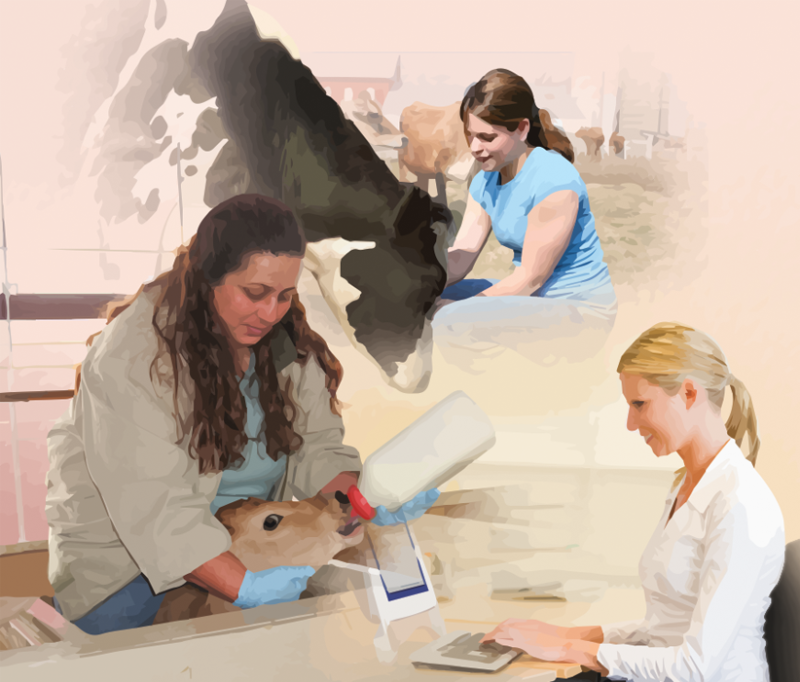Do you remember a time when you walked into a room and felt like you didn’t belong? It might have been the first day in seventh grade after you moved three counties away. Or it could be that first day of college, hours away from home. It could have been when you started your first real job and realized everyone else on the payroll was over the age of 40. Or when you had to stand up at a township meeting in front of a bunch of strangers to present your new barn proposal.
We all can remember situations when we felt out of place or like we didn’t belong. In that moment, time stood still. We stood there feeling like a sore thumb, looking desperately for someone to make us feel like we were meant to be there. Truthfully, I can remember in some of those instances, wishing I could just walk back out of the room. The only thing that kept me there was knowing what I would be losing if I left.
So, imagine what might happen if someone who isn’t from a farm, who doesn’t know a lot about farming and who may look different from us walks into a room full of farmers. Depending on our reception, they may decide it’s easier to walk back out of that room. When they leave, we lose that opportunity to connect with them, share a conversation, help them learn more about why we do what we do and maybe even engage them in working with us to promote our products.
Recently I attended the Northeast Dairy Business Innovation Summit, where they hosted a BIPOC panel to discuss how dairy can better connect with those outside our community. If you don’t know what BIPOC stands for, it refers to black, indigenous and other people of color. In listening to the panel, I realized that it’s up to all of us in dairy and agriculture to help those who aren’t part of our farm community feel more welcomed and included.
Questions to answer
This is especially important as you consider the fact that those in the farm community are part of an ever-shrinking minority. With less than 1.5% of our society involved in farming, we need to rely on others to help us share our story and what we do day in and day out to care for the food we produce, the animals on our operations and land where it all comes from. We also need to encourage more people outside our farming community to be part of our industry because their different perspectives can help us better connect with what our consumers want.
Those who spoke as part of the BIPOC panel talked about how we as an industry need to do the work and put in the time to make those outside agriculture feel more welcomed and included. They shared four questions that someone from a different background will ask when they consider becoming more involved in something. Keeping these questions in mind could help us better communicate with them and engage them in our industry.
1. Do I feel safe?
Consider how you felt the first time you traveled to somewhere unfamiliar. Have you ever felt like your safety was compromised? If so, how likely was it for you to go back to that place? Wanting to feel safe isn’t just about feeling physically safe. It is about emotional safety as well. Being transparent and honest, actively listening and encouraging people to share their own ideas are all ways to make them feel safe, both physically and emotionally.
2. Is it accessible?
This is about making it easy to get there or to be part of the event or opportunity you want to include them in. It may mean taking a farm-to-fork dinner off the farm and into a more urban area to reach people where they are. It may mean providing transportation or making accommodations for disabilities. It could be sharing your products with food pantries or community kitchens and connecting with the leaders in those venues to help share your story.
3. Have they asked me to be involved?
One person on the panel spoke about how a local cheese purveyor was hosting cheese camps with cheesemongers in the retail community. Another talked about giving a student from an inner-city school the opportunity to job shadow on the farm. A third shared how they facilitated idea-sharing boards between farmers and customers to talk about new products and opportunities.
4. Are they working to build a relationship with me?
For most people, feeling like you are included is really about knowing that someone cares. It is about reaching out to them, including them in the conversation and checking in with them. Building that rapport and relationship takes continual, open and honest communication.
Think back on your middle school days or when you first attended college. It was always tough at first because you felt like you didn’t belong. Remember how it felt when someone finally took the time to get to know you, include you in the conversation and make you feel like part of the group. That’s really all most people ever want – to feel like they belong.











